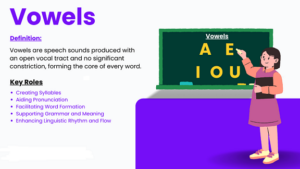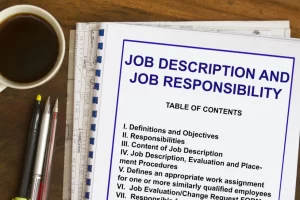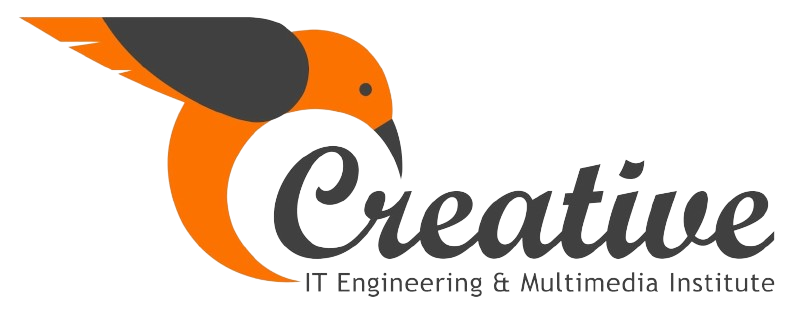How to improve your spoken English to clear interviews successfully

Face-to-face or virtual interviews can be challenging to navigate and may stand in the way of your professional aspirations.
You are attempting to market yourself and demonstrate why you are the most qualified applicant for the position during these brief exchanges. Speaking English confidently is essential for non-native speakers who want to advance in their careers in English-speaking settings.
You’ll be better prepared for your next interview with the advice in this extensive handbook. Come on, let’s get started!

Fluency in Speech and Vowels
Your interviewer will be able to understand you or not based on how you pronounce things, which makes up your accent. You might want to think about accent reduction if you have trouble pronouncing words correctly, particularly if you don’t speak English natively right now.
To begin with, practice pronouncing words clearly and pay attention to the appropriate word stress patterns. Check out this stress-relieving workout that Bold Voice coach Eliza Simpson demonstrates.
Remember Grammar
Speaking English fluently in an interview requires proficiency with articulation, but grammar should never be overlooked.
Your command of verb tenses, transitional words, spelling, and grammar is how strong? Although accent and speech patterns are significant, shaping the basis is just as crucial.
Vary the Pace of Your Speech
Talking too slowly or hurrying through your speech as though you have a lot of time on your hands is not a good idea during an interview.
You can come across as frightened if you speak too quickly, and uncertain if you speak too slowly. Aligning your thoughts with a comfortable speed that makes it easy to communicate is crucial.
Employ Basic Words
Avoid the temptation to only showcase your extensive vocabulary while you develop your interviewing skills in English. Show off your grammar prowess, but be careful—especially if you’re only learning—as this can occasionally make you more prone to errors.
You can stutter as a result of finding it difficult to express yourself with the appropriate words. Even worse, you might accidentally diminish your communication skills in the interviewer’s views by misusing a complicated term.
In my daily workflow, I employ a diverse range of strategies to tackle tasks and achieve my objectives,” though “I use different strategies to get things done efficiently.”
Rather than declaring, “My objective in team meetings is to.

Commence with the Significant Tale
When responding to a question during a job interview, start with something pertinent. Additionally, you must be succinct in your response and try to hit the mark as often as possible. BoldVoice Coach Adeola Role discusses the use of pitch to communicate significance here.
Talking about things too much during an interview can only make you come out as erratic and unconfident. Take a moment to gather your thoughts if necessary, then get right into the solution.
Display Your Accomplishments
Showing off your pertinent accomplishments in a polished, well-presented manner is nothing to be ashamed of. An interview is an opportunity to make a lasting impression, not only to talk to potential employers.
Speaking about your experiences, accomplishments, and talents can help you gain confidence, particularly if you’re not a native speaker.

Retain Eye Contact
In American culture, making eye contact shows honesty and confidence during an interview. It also indicates active listening, which indicates that you are paying close attention to what is being spoken.
Furthermore, you may more easily mimic your speaker’s demeanor the more you see them.

Gesticulate
Be able to communicate in English throughout interviews using your hands and body. Nonverbal communication is not limited to spoken words; it also includes body language.
You may fascinate your audience and highlight specific words just by opening your palm or tilting your head. You should therefore avoid bad habits like slouching or frowning and instead project confidence by keeping an upright and approachable demeanor during the interview.
Stay Calm
It’s critical to remain composed during an interview because anxiety can impair your ability to speak clearly and fluently. Calmness also improves active listening, which enables more meaningful and thoughtful answers in addition to positive body language that supports your spoken words and creates a good impression on the interviewer. Breathe deeply, remain composed, and concentrate on clearly expressing your ideas.
Investigate the Company
Become familiar with the goals, objectives, and most recent accomplishments of the organization. This displays your understanding of the business as well as your sincere interest in and dedication to the position.
Equipped with this understanding, you may effectively engage the interviewer in a calm and composed dialogue about how your objectives fit.

Comprehend the job description.
Examine the job description in detail, noting any essential competencies. Additionally, make sure your
background and skill set match the requirements of the position, and get ready to explain why you are the best applicant.
If there are any questions later on, like why you’re changing careers or why your resume has a gap, be sure to have answers ready for them.
Perfectionists Practice Makes Perfect
Prioritize practicing to improve your speaking before you enter the actual world.
If you are having trouble with any certain sounds in English, you can practice role-playing with a friend or family member to assess how well you will finally perform. You can also try minimal pair activities.
Acquire Key Words and Terminology Knowledge
Learn how to answer general expressions that are frequently used in interview situations. You’re not alone in your interview for that position, so you might as well prepare yourself ahead of time with some templates.
You can add as much as you like to your knowledge bank, from simple vocabularies to questions and phrases. Being ready for anything from standard interview questions like “tell me about yourself” and “where do you see yourself in five years” to the majority of scenario questions unique to your sector can boost your performance and confidence.
Never Commit a Script to Memory
Don’t try to commit a precise script to memory while you learn and practice speaking successfully during interviews. First of all, you can’t be certain of how your interviewer will conduct the interview, therefore your script can’t be 100% accurate. Recalling a script also tends to disorient you, which limits your ability to respond in slightly unusual conversations.
As you practice speaking English in front of interviewers, keep in mind that flexibility is essential. Understanding the process involved in speaking or responding to enquiries should be your main priority. This enables greater adaptability and self-assurance when answering enquiries.
Conduct dummy interviews
Doing a whole mock interview in advance is top advice for interviewing with confidence.
You can have a buddy interview you, or you can use AI technology such as Bold Voices AI Chat to conduct a full round of interviews with questions designed specifically for your profession, conducted by an expert AI avatar. You can improve your speech clarity as well as your English pronunciation because your responses will be rated.
Request Input.
To discover any potential obstacles as you get ready for an interview, ask friends, mentors, or language experts for their opinions. Your communication abilities might be improved with the use of constructive criticism.
In order to receive immediate feedback while you learn, you can also benefit from language-training applications such as Bold Voice.
Examine Oneself
You can practise projecting competence and confidence through your body language by practicing pronouncing words correctly and by watching how you position your mouth and tongue in front of a mirror.
In order to evaluate your speech for yourself prior to an interview, you may also use your smartphone or any other recording device.
